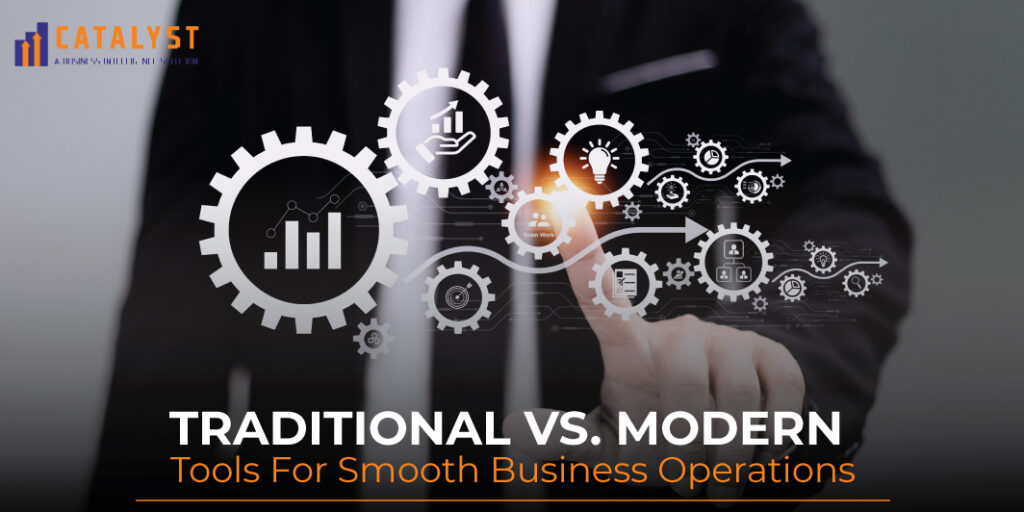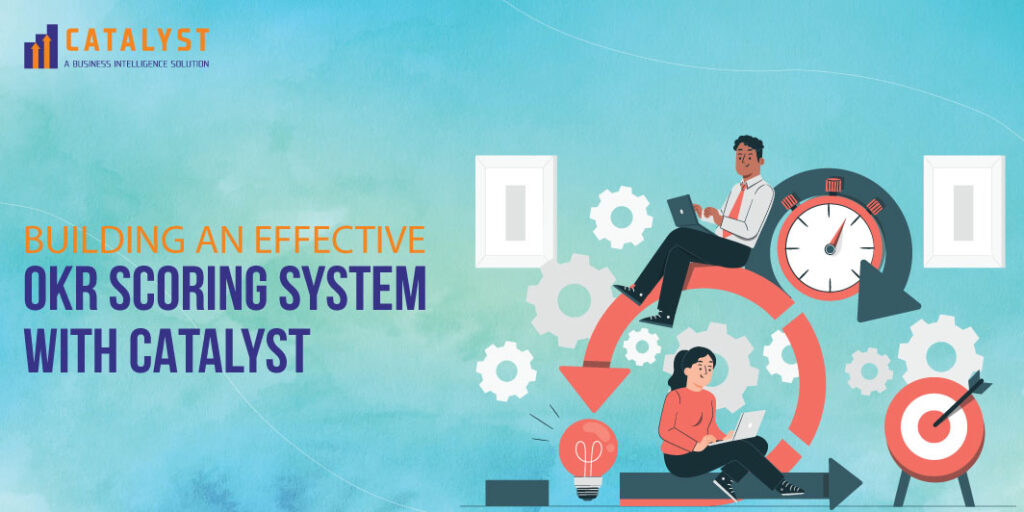
Difference Between Traditional And Modern Performance Management Tools
Performance Management is a critical aspect of any business organization that aims to assess and evaluate employees’ performance and provide feedback for improvement on a monthly basis (sometimes quarterly). Over the years, performance management tools have evolved from traditional manual methods to modern, data-driven software solutions. CATALYST by Phi EGDE, the Best Business Performance Management Software, is a good example of PMS. This article by our Performance management experts will explore the differences between traditional and modern performance management tools and highlight the benefits of adopting the latter.
Why is Performance Management Important?
Performance Management plays a vital role in the success of every organization that understands its importance. It enables companies to align individual goals with corporate objectives, track employee performance, and provide timely feedback for improvement. Effective performance management systems help in boosting employee engagement, identify top performers, know their strengths and weaknesses, identify skill gaps, give performance reviews, and foster a culture of continuous improvement. It also helps in setting realistic goals, tracking progress, and rewarding outstanding performance.
What is a Performance Management System (PMS)?
A Performance Management System (PMS) is a comprehensive framework that encompasses various processes, tools, and methodologies to evaluate and improve employee performance. It involves setting performance goals, monitoring progress, providing regular feedback, and facilitating professional development. Traditional performance management systems typically relied on manual processes and subjective evaluations, while modern systems leverage technology to automate and streamline performance management processes.
Difference Between Traditional And Modern Performance Management Tools
1. Data Driven
Traditional performance management tools rely heavily on subjective assessments and manual record-keeping, making them less reliable and prone to biases. Evaluations are often based on managers’ personal opinions and observations, which create an environment of inconsistent and unfair assessments. These tools lack the capability to collect and analyze data systematically, which limits their ability to provide accurate and objective insights into employee performance.
On the other hand, modern performance management tools leverage data analytics to measure and evaluate performance. They collect data from various sources, such as performance metrics, key performance indicators (KPIs), and feedback, to provide managers with accurate and up-to-date information. This data-driven approach enables organizations to make more informed decisions about employee performance and identify areas for improvement more effectively. Managers can track progress and performance trends over time, helping them identify patterns and make data-backed decisions on promotions, rewards, and development opportunities. Overall, the use of modern tools enhances the objectivity and accuracy of performance evaluations.
2. Quantifiable
Through Traditional performance management tools, evaluations are often based on qualitative measures, such as general observations and subjective ratings. This lack of quantifiable metrics makes it challenging for organizations to track progress, identify areas for improvement, evaluate employees, and make data-driven decisions regarding performance management.
In contrast, modern performance management tools provide quantifiable metrics and key performance indicators (KPIs) to measure and track performance. These tools enable organizations to set clear and specific performance goals and track progress against them. This data-driven approach allows for more objective evaluations and enables organizations to make informed decisions about rewards, promotions, training, and development opportunities. Using the best Business Performance Management Software like CATALYST, you can be sure of using the best practices to evaluate performances.
3. Normalization
Traditional performance management tools often follow a normalization process, where line managers distribute performance ratings based on predefined distribution curves. This approach often leads to forced rankings or quotas, resulting in an inconsistent and unfair evaluation process. In contrast, Modern Performance Management Software Systems rely on data obtained through ongoing feedback and performance analytics, eliminating the need for normalization. By leveraging objective data and real-time analysis, modern tools provide a more accurate and fair evaluation of employees’ performance.
4. Time in Performance Evaluation
Traditional performance management tools typically involve manual data collection methods, such as filling out paper forms or manually recording feedback. This process is time-consuming, labour-intensive, and prone to errors. It relies heavily on paperwork and manual entry, making it challenging to track and analyze performance data effectively.
In contrast, modern performance management tools leverage technology to automate and streamline the process. With the use of online platforms, mobile applications, and cloud-based software, organizations can collect, store, and analyze performance data in real time. This not only saves time but also ensures accuracy and efficiency in the goal-setting and evaluation process.
Conclusion
The shift from traditional to modern corporate performance management software has revolutionized the way organizations assess productivity, evaluate, and improve employee performance. Modern tools offer numerous advantages, including data-driven analysis, quantifiable metrics, fair and accurate evaluations, efficient processes, and a balanced focus on ongoing tasks and new goals. To choose the best performance management software, organizations can consider Catalyst by Phi EDGE, which offers comprehensive performance management software. By embracing modern performance management tools, organizations can drive improved performance, engagement, and success. Interested to make your performance review process free from biases? Choose CATALYST today.
BOOK A DEMO NOW


